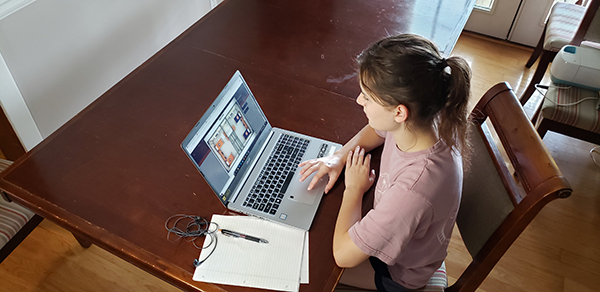At some point — likely long before this fall’s entering class graduates from college — the COVID-19 pandemic will be over and life as we knew it will return. In the meantime, Robert Massa, a former admissions dean from Johns Hopkins University and Dickinson College who teaches about higher education at the University of Southern California, has some observations that might help students who will start college in 2020 and 2021.
More time
Colleges will likely be flexible in allowing students to apply, even at this late date. Depending on how close a college is to filling its class, it may be flexible.
A better shot
Because of the economic consequences of the coronavirus, as many as a fifth of students think they may have to abandon their first choice college to attend a school that is more affordable, according to a survey conducted in March.
In addition, that survey found that a college closer to home would be a more viable choice than a first-choice institution for 35% of students.
Taking these factors into consideration, colleges are likely to admit more students than they did last year because they expect that more of their admitted students will ultimately opt to stay closer to home or to attend a more affordable school.
Bigger scholarships
Colleges are worried that the health concerns and the economic fallout from the pandemic will result in more students declining admission offers.
For this reason, I believe colleges will be likely to offer students more money in an effort to get them to enroll. The competition for student enrollments will be intense.
More need-based aid may be available
If a family is affected by the economic fallout from COVID-19, they may appeal for additional need-based financial aid. The financial aid system estimates parents’ ability to pay on income that was earned two years ago.
Due to COVID-19, income earned in the first quarter of 2020 may not predict a family’s total 2020 income.
For that reason, it will be important for families to work with the financial aid office of the colleges on their list to help them take a lower family income into account when calculating the family’s eligibility for financial aid.
It is important for families to explain the need for more financial aid during the application process or certainly pre-deposit — not after paying an enrollment deposit.
More virtual visits
In the past, I always advised students to schedule a day to visit the campus of a school they might attend.
Among other things, I would tell them to request a meeting with a faculty member in a major they might consider, to sit in on at least one class and to meet with an admissions officer and a financial aid adviser if appropriate.
The big open houses for admitted students are great because you get to meet potential classmates, but they are not the same as visiting campus during a school day.
Many colleges are now hosting virtual visits complete with live tour guides and interactive Q&A sessions. Some have also built upon existing social network platforms to encourage engagement with members of their campus community.
In addition to these staged visit programs, you can also request to meet with a professor on a video chat. You can even ask to visit an online class.
The visit really isn’t about the buildings or the beauty of the physical space. It’s about the people with whom you will live and learn. Hopefully you can get a good feel for that through the virtual version.






Share with others: